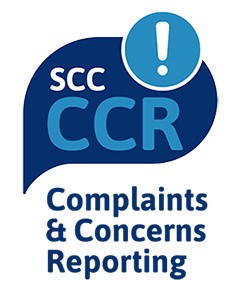What should I be concerned about?
As a member of the SCC learning community, you may be the first to notice the signs and symptoms of a student’s distressed behavior. If you notice these signs, a direct conversation with the student will allow you to gather a little more information, express your concern and offer resources and referral information.
Often, there are indicators that a student is experiencing distress long before a situation escalates to a crisis. To assist our students in maintaining their well-being and maximizing their intellectual growth, it is important to identify difficulties as early as possible and connect the student with the needed resources and services. The presence of one of the following indicators alone does not necessarily mean that the student is experiencing severe distress.
| However, the more indicators you notice, the more likely it is that the student needs help. |
|---|
Academic Indicators
- Repeated absences from class or lab
- Missed assignments, exams, or appointments
- Deterioration in quality or quantity of work
- Extreme disorganization or erratic performance
- Written or artistic expression of unusual violence, morbidity, social isolation, despair, or confusion; essays or papers that focus on suicide or death
- Repeated seeking of special provisions (extensions on papers, make-up exams)
- Patterns of perfectionism: e.g., angry at themselves if they don’t get an A
- Overblown or disproportionate response to grades or other evaluations
Behavioral & Emotional Indicators
- Direct statements indicating distress, family problems, or loss
- Angry, hostile outbursts, yelling or aggressive comments
- More withdrawn or animated than usual
- Expressions of hopelessness or worthlessness; crying or tearfulness
- Expressions of severe anxiety or irritability
- Excessively demanding or dependent behavior
- Lack of response to your outreach
- Shakiness, tremors, fidgeting, or pacing
Physical Indicators
- Deterioration in physical appearance or personal hygiene
- Falling asleep in class repeatedly; excessive fatigue, exhaustion
- Statements about change in sleep or appetite
- Extreme changes in weight
- Noticeable cuts, bruises or burns
- Frequent or chronic illness
- Disorganized speech, rapid or slurred speech, confusion
- Unusual inability to make eye contact
- Coming to class bleary-eyed or smelling of alcohol
Other Factors
- A hunch or gut-level feeling that something is wrong
- Concern about a student expressed by another student, peer or colleague
Report Online
If a person is an immediate threat themselves or someone else or is incapable of caring for themselves, CALL 911.
